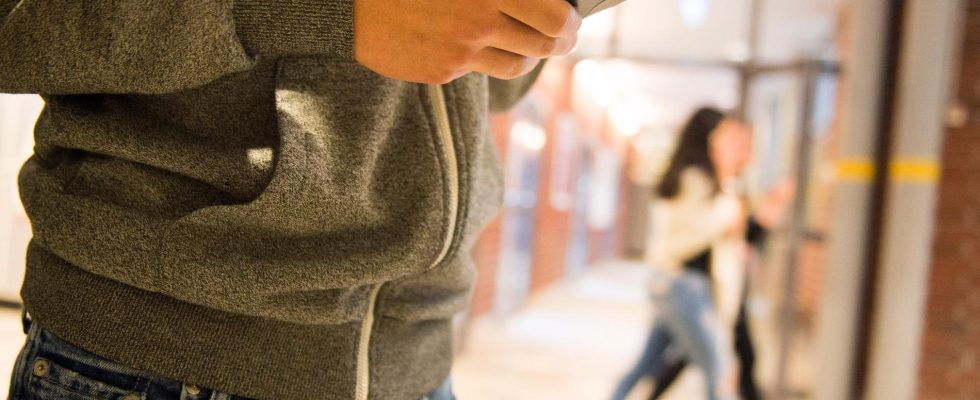Save the article
full screen
Next
About one in eight children have unwanted nude photos sent to them by strangers, a new report shows. Genre picture.
1 / 2Photo: Erik Nylander/TT
Many children are exposed to unwanted nude images without their parents knowing, according to a new report.
– The most important thing as an adult is to talk, says a child psychologist.
One in eight children has had nude photos sent to them by a stranger in the past year. This is evident from the report “The Swedes and the Internet 2023” by the Internet Foundation. But it is not something that the parents know about. In the same report, only 3 percent say that their children received nude pictures sent to them in the past year.
– The most important thing as an adult is to talk. Children need adults’ help with strategies to deal with this, says Hanna Thermaenius, child psychologist at Rädda Barnen.
She is careful to point out that scolding and bans do not help, even though this may be the spontaneous reaction of many parents.
– Adults must find peace, And accept children’s stories as a gift. Instead of punishing and reprimanding and maybe saying “now there will be no mobile or snapchat”. It is not a solution, she says and continues:
– Something like this can affect children very differently. It can be a very troublesome thing or almost an unproblematic thing, if we are talking about older children who might send or receive pictures themselves in a relationship. When it happens from strangers, it’s obviously not okay.
Different platforms
In addition to having a lively dialogue and being open to talk, Thermaenius thinks that parents can think about social media and new platforms where the children are a bit like leisure activities:
– The more we share worlds, the easier it is to talk about. Many are at the soccer practice or the dance lesson, but how many take part in the children’s lives on their mobile phones, or have Tiktok themselves?
– If you get accounts on the platforms where the children are, it is important to be open about it. It must not be secret surveillance.
Thermaenius also says that adults other than individual parents also have a role to play in making children feel safe.
– All conversations are good conversations and all children are everyone’s children. It is about guiding children and young people. Not to back down if they bring something up in confidence with an adult.
– The most important thing as an adult is to make things talkable. If it feels uncomfortable, a tip might be to turn it away from the child’s own experience. For example, you can ask if the child has friends who have had nude pictures sent to them.
Victims and perpetrators
Nor is it only in the capacity of victims that adults may have to approach the issue of children, the internet and nude images, says Thermaenius:
– Images that are sent when it is mutual, for example, it feels exciting in the moment, but it can be difficult to grasp how such an image can be spread. Children can become perpetrators if they pass something like this on. It is also important to talk about.
FACTSHere is help
In the event of serious incidents, in addition to contacting the police, social services or care if a child needs help, you can turn to:
+ Bris: bris.se. Support for adults 077-150 50 50. Support for children and young people 116 111
+ Ecpat: Ecpat Hotline (ecpathotline.se), a web-based notification page where you can anonymously report suspected sexual exploitation of children.
+ Ditt Ecpat (dittecpat.se) is a place for everyone under the age of 18. There you can get help, support and knowledge about images, sexual abuse, threats and abuse. They can also help take down nude photos that have been shared online.
+ Save the Children: raddabarnen.se. Save the Children Center for support and treatment 08-698 90 00
For those who are worried about their sexual impulses, there is help to get:
+ “Prevent it” is an anonymous and free cbt treatment that takes place via the internet, which is led by the Karolinska Institutet. Participants should gain a better understanding and control over their thoughts, feelings and behaviour.
+ PrevenTell is a national helpline for those who feel they have lost control of their sexuality. It is also anonymous and can be found on 020-66 77 88.
Read more
